What is phenylethylamine, or PEA? More importantly, is phenylethylamine a nootropic?
Basically, PEA is best known as Nature’s, “love drug”. It’s responsible for the feelings of euphoria we experience when we eat chocolate.
PEA does in fact have some great benefits. Research has shown that it improves attention control, encourages creative flow states, and enhances sociability.
Essentially, it behaves like a stimulant without actually being a stimulant, which I’ll talk about more later.
This article explores how PEA works, and discusses whether or not we can use it as a nootropic.
Let’s dig in, shall we?
What is PEA?
PEA is a trace amino acid that is naturally present in the brain.
It’s also found in a number of foods like chocolate, beans, peas, and eggs.
PEA is a member of the amine class of chemicals, and has a molecular structure very similar to:
- Amphetamines
- Antidepressants
- Appetite Suppressants
- Decongestants
- Psychedelics
That being the case, PEA has some characteristics that mirror those of these other compounds.
Most people taking PEA report feeling very ‘up’, for example.
Some have also noticed improvements in sensory perception; something more commonly seen with antidepressants or psychedelics.
Generally speaking though, PEA provides a lot of the benefits we experience when using stimulants, but without the harsh side effects, and without developing a tolerance.
Coffee drinkers, for example, often complain that they crash at the end of the day or they just can’t get enough of a buzz out of their daily cup of mud.
PEA doesn’t work like that.
Neurohackers that supplement with PEA usually report feeling really great about 15 minutes after they take it, and then leveling off after 30-60 minutes.
They don’t feel grumpy or anything. PEA wears off gracefully.
However, it does have its’ limitations.
PEA is broken down very quickly by Monoamine Oxidase (MAO-B), an enzyme in the brain. That’s why it’s effects are so short lived.
The bad news doesn’t stop there, though. MAO-B levels naturally increase as we age, which lowers PEA.
This sets off a chain reaction that leads to the following issues:
- Mood Suppression
- Brain Fog
- Decreased Motivation
- Increased ADHD Risk
- Increased Risk of Contracting Parkinson’s Disease
The main reason less PEA in the brain leads to all of these problems is closely tied to how it works, which is what we’ll get into next.
PEA for Brain Function – Primary Mechanisms
Basically, PEA indirectly boosts neurotransmitter levels by doing 2 things:
- Acts as a Reuptake Inhibitor for Dopamine, Norepinephrine, and Serotonin
- Increases Distribution Rate for Dopamine, Norepinephrine, and Serotonin
PEA blocks the actions of MAO, preventing it from breaking down dopamine, norepinephrine, and serotonin.
This helps maintain optimal levels of these neurotransmitters.
It also encourages more of these neurotransmitters to be released into the synapses when neurons are sending signals.
So the rate of release is the same, but the amounts are augmented.
These effects indirectly lead to a host of cognitive benefits:
- Elevated Mood
- Better Working Memory
- Enhanced Creativity
- Anxiety & Stress Relief
- Increased Attention Control
- Greater Motivation
- Improved Social Behavior
It’s also worth noting that the neurotransmitters dopamine, norepinephrine, and serotonin are very closely associated with depression.
Which brings us to our next topic.
PEA for Depression – How does it Help?
PEA levels in the urine and blood are now being used as biomarkers to diagnose clinical depression.
Medical professionals have seen over and over again that depression, low PEA, and decreased levels of dopamine, norepinephrine, and serotonin are all closely connected.
Depression is a very common social disorder, and is estimated to be the primary cause of disability by the year 2030. Women are 50% more likely to wrestle with depression, and it can reduce lifespan by up to 30 years.
It’s no wonder that researchers are so excited to realize that low PEA levels are easy to test for, and can be used to confirm whether or not someone is clinically depressed.
Currently, the most common antidepressants worldwide are serotonin reuptake inhibitors (SSRI’s), and they work for about 80% of patients. So what about the other 20%?
SSRI’s can also have some pretty serious side effects with long term use like insulin resistance and loss of bone density.
Naturally, the medical community has been looking for better alternatives, and PEA is looking to be an excellent candidate.
PEA taken together with an MAO-B inhibitor has been shown to be effective for 60% of patients, and without the side effects of SSRI’s.
Since PEA is endogenous to the brain (naturally occurring), patients also don’t develop a tolerance to it over time.
So that’s why PEA is good for depression.
Why is it so highly recommended for ADHD?
PEA for ADHD – How it Prevents Symptoms
ADHD is usually diagnosed with a series of questionnaires that evaluate symptoms. This is the same method that was used when Abraham Lincoln was president 150 years ago.
If you’re thinking this system needs a bit of an upgrade, I totally agree with you. Fortunately, there’s a better way.
Just like with depression, PEA levels in the blood or urine can be used as a biomarker to diagnose ADHD.
This can increase confidence in patients that the diagnosis is correct, and can prevent people who don’t have ADHD from being prescribed medications they don’t need.
Sadly, medications like Adderall and Ritalin are the most commonly used for people with ADHD, including children. The side effects can be quite severe, and include cardiovascular issues.
Again, people in the medical community have been looking for alternatives.
In fact, some naturopathic doctors have started prescribing PEA for ADHD symptoms because it doesn’t have severe side effects, and people do not develop a tolerance to it over time.
It’s also important to realize that when you look at the symptoms of ADHD, and compare them to the areas of cognition that PEA improves, they’re an almost perfect match.
People with ADHD struggle with:
- Short Attention Span
- Lack of Focus
- Depression & Anxiety
- Poor Impulse Control
- Antisocial Behavior
Compare this list to the benefits PEA has to offer:
- Elevated Mood
- Better Working Memory
- Enhanced Creativity
- Anxiety & Stress Relief
- Increased Attention Control
- Greater Motivation
- Improved Social Behavior
See what I mean? PEA has an answer for every problem ADHD presents, and even provides a few perks beyond that.
So now that I’ve stated my case, what are the best ways to use PEA safely and effectively?
PEA Dosage – Recommendations for Best Results
PEA is available in tablets, capsule, or as a bulk powder. I don’t recommend using tablets or powders, because it’s a particularly nasty tasting supplement. Just trust me, get capsules.
Recommended dosages for PEA vary according to how you take it.
If you take PEA on its’ own, you should be looking at taking 500 mg dosages up to 3 times a day. That translates to 500-1,500 mg/day total.
PEA by itself will get broken down very quickly by the MAO-B in your brain, so it’s effects will last for an hour at most.
However, if you take PEA with an MAO inhibitor, everything turns upside down. An effective dosage of PEA taken with an MAOI can be as little as 2.5 mg, and should last for about 2 hours.
This brings me to the “Cheese Effect”; taking PEA with any MAOI can cause a huge spike in blood pressure. However, there are some MAOI’s that do not cause this issue.
Natural MAOI’s that can be used safely with PEA include hordenine, oat straw extract, and foods like chocolate, cheese, beans, eggs, and peas.
Selegiline is a synthetic MAOI that can be used safely in low dosages with PEA.
I don’t recommend experimenting on yourself with different combinations to see what happens. If you are taking any prescription MAOI’s, just don’t take any PEA.
PEA taken with MAOI’s is comparable to taking an amphetamine, and the side effects can include:
- Nausea
- Irritability
- Jitters
- Cardiovascular Issues
Last but not least, please do not use PEA if you have PKU. People with this rare condition can’t break it down, and it will build up in their system. The results can be disastrous.
OK. So we’re just about ready to wrap things up here.
The last remaining questions to address are, who can get the most out of PEA supplementation? What are some additional notes to make about its’ best uses?
Is Phenylethylamine a Nootropic? – Final Word
PEA has some pretty serious limitations, and using it is sometimes considered controversial.
However, it has some pretty significant benefits to offer, especially for people that are dealing with depression or ADHD.
PEA as an alternative treatment for ADHD is of particular interest to me because I have ADD, and so does my daughter.
I’ve tried Awaken Gold from Awakened Alchemy, and I think it’s a great product.
Awaken and Awaken Gold both have PEA in their formulations, and I think it’s a good nootropic to have in both stacks.
In fact, anyone interested in trying PEA as a part of a holistic supplement should consider trying them, in my opinion.
PEA has been found to be a good nootropic to take just before working out, and is also good for studying.
It’s being studied for the treatment of ADHD, depression, bipolar disorder, schizophrenia, and Parkinson’s disease.
It’s a particularly good substitute for prescription medications traditionally used to treat ADHD like Ritalin or Adderall.
This is because PEA provides stimulant-like effects, but without harsh side effects or people developing a tolerance to it over time.
The benefits of PEA can last longer when taken with mild MAOI’s in small doses, but users need to be careful if they choose to go this route.
However, when used properly, PEA can be a very useful for improving:
- Executive Function
- Mood
- Creativity
- Attention Control
- Anxiety & Stress Relief
- Performance
- Impulse control
- Sociability
If any of these advantages could make your daily routine easier, PEA might be a good nootropic for you.
Perhaps you should consider trying Awaken or Awaken Gold?
That’s all I have for you on PEA. I hope you enjoyed this post.
In my next article, I’ll be looking at black pepper as a nootropic, so don’t miss it!
Until next time,
Michael
P.S. – Leave a comment below if you have any questions.
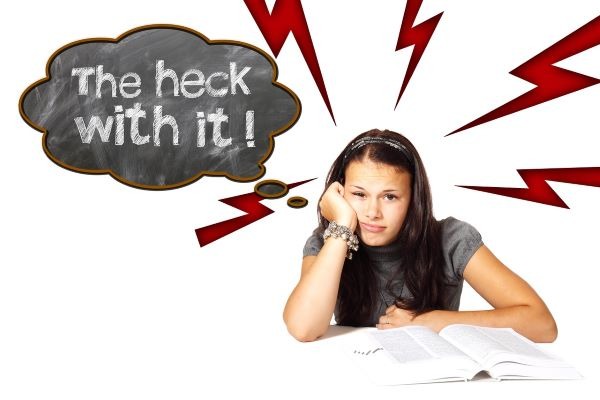
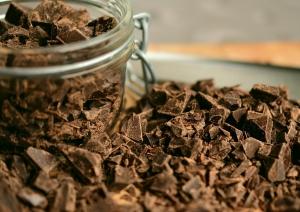
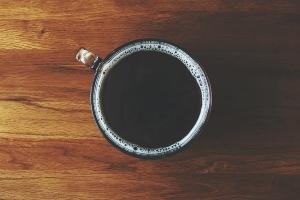
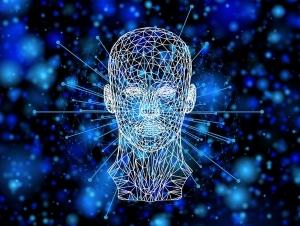


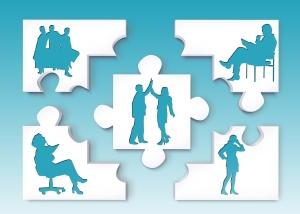
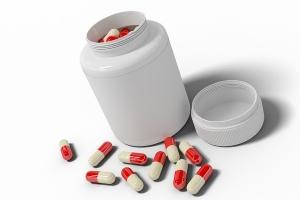
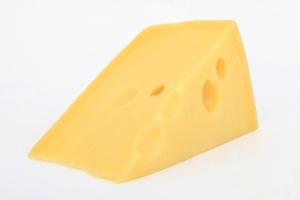

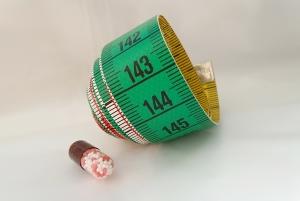
It’s not hard to believe that there is a better solution to ADD or ADHD than Adderall. Sure, a lot of people benefit from using Adderall, but like you said, the long term use can have negative side effects, not to mention the immediate side effects such as rapid heart beat, insomnia, addiction, etc… Adderall also causes people who drink occasionally to drink more often, and more at a time. The effects of alcohol are quite different or diminshed when someone is on Adderall. The fogginess just doesn’t come as easily, as a person can drink several times more than normal before feeling tired or, well, like they are drunk. For many, once they see the benefits of drinking while on Adderall, they can’t seem to not drink everytime they take it, and most people on ADD medication take it at least once a day.
Certainly I realize there are those who aren’t susceptible to this combined addiction issue. But I’ve been amazed over the years how many people I’ve seen go down the same path.
That said, I’m personally glad to hear that there are more natural methods for treating this disorder that we’ve only clearly identified in modern times. PEA could well prove to be the solution. Thanks for your article and for the info you’ve provided. 🙂
Darrin
Hey Darrin,
Thanks for taking the time to read my article, and sharing your thoughts.
My doctor prescribed Adderall to me when I found out I have ADD. I never knew it could augment your endurance when drinking. I always took it for work.
I’m glad PEA is being researched as an alternative, just like you. Let’s hope we see some progress in this area soon!
Thanks once again, Darrin.
Michael
Your article about PEA use for ADD and ADHD was interesting. Knowing that a lot has been discovered since we first discovered ADD a few years ago. The imbalance due to how our bodies handle the nutrient is surprising. I do think that the food of my youth, while maybe not as interesting or varied as diets eaten by children now, came from fields that were more nutrient deep and not so used up. We were raised on a farm and grew our own beef, pork and chicken and all related items. Had gardens that were harvested and preserved. Our nutrition was fairly complete.
Now a couple of generations down the road with more depletion of soils that grow our food, we lose some pf the benefit. That has made me very diligent about holistically approaching the health issues we face now. While there are many other factors that are different, we do have to work a little harder at the nutrition factor of our health. If adding PEA to the daily routine can help with depression as well as the ADD and ADHD it would be a good one to include.
I will reread your article, as things don’t always make sense to me at first when learning about a new idea or concept.
I do appreciate your calling this to my attention.
As someone who is occasionally depressed, this is of definite interest to me.
Hi Sammi,
Thank you for reading my article, and sharing your experiences in this area.
You are very right. The food we eat now is diminished in quality for so many reasons. Chemical fertilizers, GM foods, herbicides, pesticides, the list goes on and on.
Thank you for sharing that you have dealt with depression in the past. It seems to be more and more common nowadays.
If you think of any questions later, please post another comment, and I’ll get back to you right away.
Michael
Hello Michael,
Thanks for sharing such valuable information!!!
I learned quite a few things about PEA that really surprised me. In the section where you talk about how the ingredients support each other, you mention that piperine helps other nootropics get absorbed more effectively.
So does that help with the ingredients you said were underdosed? Or is it not enough of an influence?
Thanks!
Hi Alysse,
Thanks so much for taking the time to read my article. Really appreciate your interest.
Good question. With some ingredients, it would make a difference if say they were underdosed by 25 mg from the ideal dosage, but ashwagandha only has half the recommended amount to be effective.
So while piperine helps with the absorption and effectiveness of several of the other nootropics in Awaken and Awaken Gold, it can only do so much.
Hope that helps.
Michael
Hey Michael,
Thanks for sharing this article.
I had no idea PEA is so useful for ADHD and depression.
My question is, why would you take it in the form of pills if you can get it from beans, peas, eggs, chocolate, etc? Is it not enough?
In any case, very informative article. I’m glad I read this.
Thanks, Michael!
Keep up the good work.
Hey Ivan,
Thanks for taking the time to read my post on PEA.
In answer to your question, yes, you are right. We can get some PEA from the foods we eat, but it usually isn’t enough to see improvements in cognition or mood.
The same goes for PS and choline, which are also naturally occurring in foods. If we don’t actively supplement with them, they won’t benefit us as nootropics. They’re just micronutrients like B vitamins.
If you have any other questions that come to mind later, just post another comment. I’ll get back to you right away.
Michael
Hello Michael,
This is a very well structured post with some good information in it.
I’m somewhat shocked to hear that Adderall is one of the more common prescriptions used for children with ADHD symptoms. There must be better options available to us, surely!
In any case, I’m glad I had a chance to read your article.
Keep up the good work!
Hi Carlos,
Thanks for giving my article a read, and taking the time to post a comment.
Yes. I’m sometimes surprised at how common it is for Adderall, and even Ritalin to be prescribed for children with ADHD.
You should read my article on Bacopa Monnieri. Some very interesting research is being done with Bacopa for use with children. It’s very safe and effective, so I see a lot of potential there for alternative therapies.
Thanks once again, and if you think of any other questions, just give me a holler!
Michael
Hello Michael,
It is a hazardous thing for “normal” people to give a serious comment to suffering things like ADHD
I am not able to provide any advice, and I think this article is well written by a person who has competence in the real stuff.
It is an interesting article with a lot of insight and knowledge, so I will recommend everyone who struggles with things like ADHD to read this article.
Thank you for sharing this,
Simon
Hello Simon,
Thanks for taking the time to read my article, and sharing your thoughts.
I also have to be very careful when commenting on websites where frustrated parents are trying to decide whether to put their children on prescription medications or not.
The tendency to judge these parents is really high. I have to measure my words very carefully.
Needless to say, I am looking forward to the day when we have herbal nootropics we can prescribe for ADHD symptoms with less side effects than traditional medications.
Based on the literature I have been reading, we are getting pretty close to that point.
Thanks once again for your interest, Simon, and please post another comment if you think of any questions later.
Michael